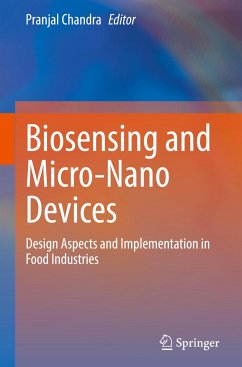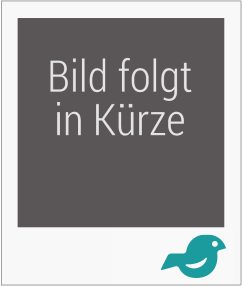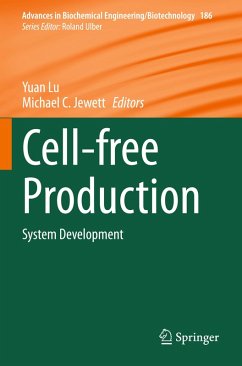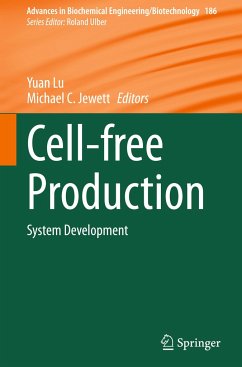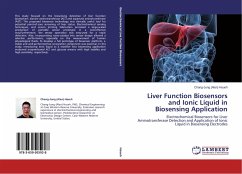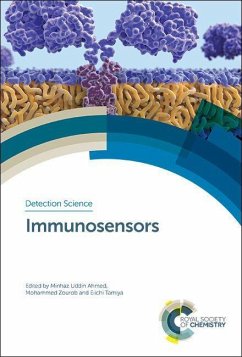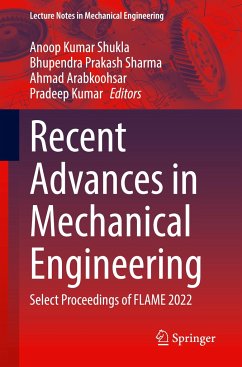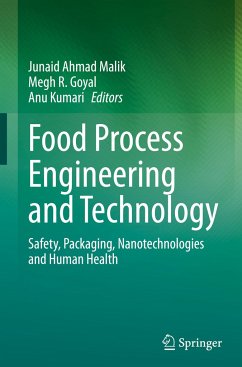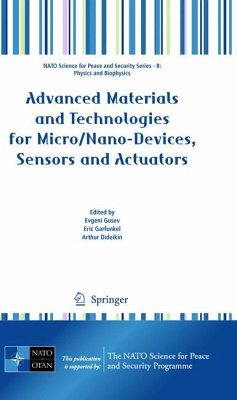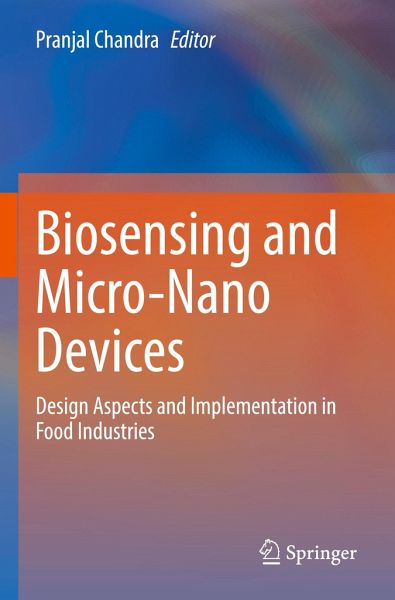
Biosensing and Micro-Nano Devices
Design Aspects and Implementation in Food Industries
Herausgegeben: Chandra, Pranjal
Versandkostenfrei!
Versandfertig in 6-10 Tagen
189,99 €
inkl. MwSt.

PAYBACK Punkte
95 °P sammeln!
This book reviews applications of nanomaterial and nanodevices in the food industry. It also discusses the advanced bioanalytical techniques, including Enzyme-Linked Immunosorbent Assay (ELISA), immunoanalytical techniques, and monoclonal antibody-based immunological techniques for detecting food adulterations and allergens. It comprehensively covers electrode modification and nano-engineered fabrication of biosensors to enhance their functionalities for utilization in food industries. The book highlights the utilization of nanobiosensors for food safety and quality analysis, such as detection...
This book reviews applications of nanomaterial and nanodevices in the food industry. It also discusses the advanced bioanalytical techniques, including Enzyme-Linked Immunosorbent Assay (ELISA), immunoanalytical techniques, and monoclonal antibody-based immunological techniques for detecting food adulterations and allergens. It comprehensively covers electrode modification and nano-engineered fabrication of biosensors to enhance their functionalities for utilization in food industries. The book highlights the utilization of nanobiosensors for food safety and quality analysis, such as detection of toxin, food-borne pathogen, allergen, evaluation of toxicity etc. Further, it also summarizes the recent advances in nanodevices such as nano-systems, nano-emulsions, nanopesticides, and nanocapsules and their applications in the food industry. Lastly, it covers nanomaterial-based sensors for drug analysis in diverse matrices. It serves as an invaluable source of information for professionals, researchers, academicians, and students related to food science and technology.



